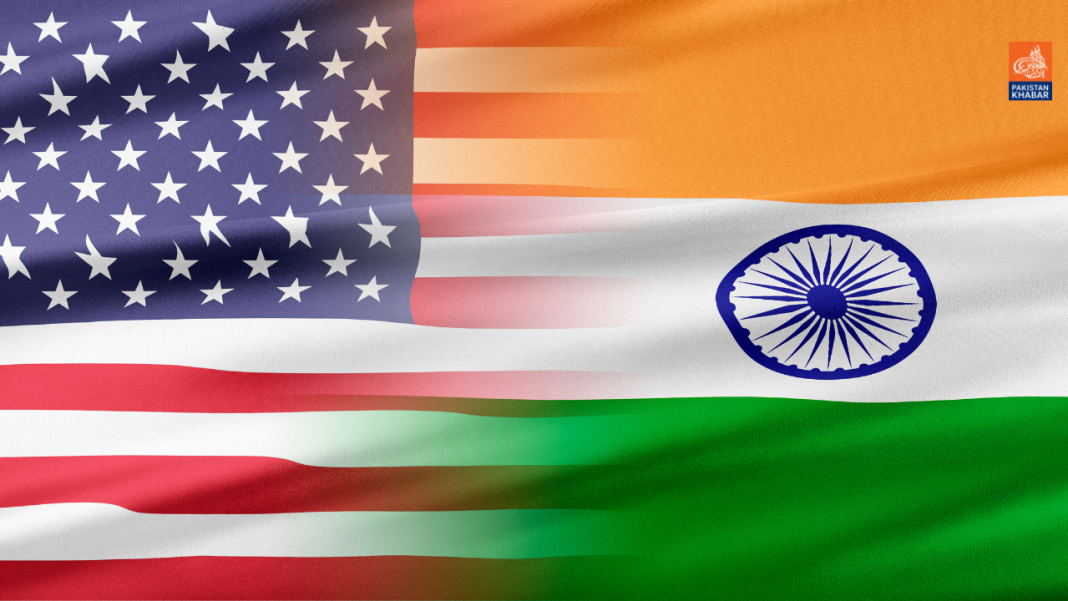Dismissal of Natwar Singh in 2005, removal of Mani Shankar Aiyer from the petroleum ministry, appointment of S. Jaishankar, as foreign secretary and then minister in 2019 are attributed to American influence in Indian politics
By Iftikhar Gilani
Former senior Indian diplomat and external affairs minister Natwar Singh who passed away at the age of 93 in New Delhi recently did not doubt that Americans play as much dirty role in Indian politics as they do in the neighbouring countries, more so in Pakistan.
This narrative unfolds through the experiences of the dismissal of Natwar Singh from the Manmohan Singh government in 2005, the removal of Mani Shankar Aiyer from the petroleum ministry in 2006 and 2015 the appointment of S. Jaishankar, as the foreign secretary and then the minister in 2019.
Appointed to the position in 2004 under Prime Minister Manmohan Singh’s government, Singh’s tenure was marked by significant diplomatic engagements. However, his career took a dramatic turn when he became embroiled in a scandal linked to the Paul Volcker report.
The Volcker report, released in 2005, named Singh among various politicians and businessmen who were alleged beneficiaries of oil deals with Iraq under Saddam Hussein’s regime.
The report claimed that Singh and others received oil vouchers as bribes, an accusation that significantly tarnished his reputation.
A year before this scandal broke out, Singh alleged that the US had directly influenced Sonia Gandhi, then Congress President, to prevent him from holding the foreign ministry position in 2004 when the Congress-led alliance won elections.
According to Singh, the Americans were displeased with his stance on the US-led war in Iraq, and their pressure was a factor in his removal.
In his book, “One Life is Not Enough,” Singh writes that Mrs Gandhi had told him that she was under tremendous pressure from Americans not to give him external affairs ministry.
She asked him to choose some other ministry. But since he had been the foreign policy advisor of Mrs Gandhi, since 1998, when she entered into politics, he refused and insisted on the external affairs ministry. But a year later he was removed.
His removal from the Ministry of External Affairs was not merely a consequence of the scandal but also reflected broader geopolitical manoeuvres.
The US was keen on finalizing the nuclear agreement with India, and Singh’s opposition to the American-led invasion of Iraq reportedly became a point of contention.
The US’s insistence on removing Singh as a condition for advancing the nuclear deal underscored the significant role international influences can play in shaping domestic political outcomes.
A similar thing happened to another minister Mani Shankar Aiyer. In 2004, he was appointed as Minister for Petroleum and Natural Gas. Soon he took over charge, he started taking an interest in reviving the Iran-Pakistan-India, tri-nation gas pipeline project.
He even appointed a diplomat Talmeez Ahmed as an additional secretary in his ministry to accelerate agreements on this project. In 2006, he was removed from this ministry and sent to head sports and youth affairs.
Fast forward to 2015, when Prime Minister Narendra Modi made a noteworthy decision by appointing S. Jaishankar as India’s foreign secretary. This appointment was made just two days before Jaishankar’s retirement from the Indian Foreign Service, a move that raised eyebrows due to its timing.
Jaishankar, who had previously served as India’s ambassador to the US, was seen as a reward for his exemplary service and strategic role in key diplomatic negotiations to conclude the nuclear deal.
He was also a person behind President Barack Obama’s visit to India.
The timing of Jaishankar’s appointment was particularly notable. According to service rules, once a bureaucrat retires, they cannot be appointed to a key position like Foreign Secretary.
However, Modi’s decision to appoint Jaishankar just two days before his retirement allowed for a two-year extension, highlighting the importance of this role in shaping India’s foreign policy.
It was known in New Delhi’s diplomatic circles that Jaishankar had been very close to Americans. They have been valuing him as their asset.
WikiLeaks disclosures had revealed details about his close interactions with US diplomats, raising questions about his pro-American stance.
The leaked cables highlighted Jaishankar’s efforts to ensure that US embassy officials were aware of India’s voting patterns at the UN and diplomatic strategies. One notable cable from February 2010 mentioned Jaishankar’s push for closer cooperation with the US to counter China’s assertive policies.
Earlier in 2013 Manmohan Singh had also favoured to appoint him as foreign secretary. However, the WikiLeaks disclosures painted a picture of Jaishankar as someone strongly aligned with US interests, which sparked concerns within the Congress party.
Some leaders feared that Jaishankar’s pro-American inclinations, as revealed in the WikiLeaks cables, might undermine India’s diplomatic autonomy. This internal resistance, coupled with the broader geopolitical context, made Jaishankar’s appointment a subject of debate.
The cases of Natwar Singh and S. Jaishankar illustrate the profound impact that US influences can have on domestic political decisions.
Singh’s removal due to alleged US pressure and Jaishankar’s controversial appointment underscores the intricate relationship between international diplomacy and domestic politics. These instances highlight how global actors can shape political outcomes in other countries, influencing key decisions and appointments based on their strategic interests.
The dynamic between international pressures and domestic politics is not unique to India; it reflects a broader trend observed in various countries.
The influence of powerful nations on smaller or developing countries can manifest in numerous ways, from direct political pressure to subtle diplomatic manoeuvres.
Understanding these dynamics is crucial for comprehending how global politics intersect with national governance and how leaders navigate these complex interactions.
As India continues to play a significant role on the global stage, the interplay between international influences and domestic politics will remain a critical aspect of its governance.
The experiences of Natwar Singh and S. Jaishankar provide valuable insights into this complex relationship, offering a lens through which to view the broader implications of international diplomacy on national political decisions.
####




